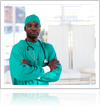Gynecomastia can be psychologically devastating for men. It refers to the atypical enlargement of breast tissue in boys, adolescent males, and men. If you have this condition, consider arranging a gynecomastia consultation in Manhattan, NY. Knowing what to expect during your consultation can help you prepare for it and make the most of your time with the gynecomastia surgeon . 
Providing Information
Just like other medical appointments, you can expect to spend the first portion of your consult providing important information about your health history. Your gynecomastia surgeon will need your health history to try to pinpoint the underlying cause of your condition and to make sure that the treatment options he or she recommends will be safe and effective for you. Disclose your other diagnoses and the medications or supplements you’re taking. Let the surgeon know if you have a history of substance abuse, since recreational drugs can sometimes contribute to gynecomastia. Your surgeon will need to know when your gynecomastia first developed and to what extent it affects your daily life.
Undergoing Medical Exams
You can expect to undergo a physical exam during your consultation. The surgeon may ask to measure your breasts, examine the skin quality, and evaluate the placement of the nipples and areolas. You may also be asked to undergo medical testing, such as tests to check your endocrine function.
Discussing Treatment Options
After thoroughly evaluating your health, your gynecomastia surgeon will recommend treatment options that may be appropriate for you. During this portion of the consult, it’s important that you ask any questions you have about your condition and its treatment. Patients should be fully informed before making a decision to move ahead with plastic surgery. Some questions you might want to ask may involve the extent of the plastic surgeon’s experience with gynecomastia surgery and the likelihood of your condition resolving on its own as time passes. If you are considering undergoing breast reduction surgery, be sure to ask how you should prepare for the procedure, what you can expect during it, and how you can facilitate a safe recovery.

